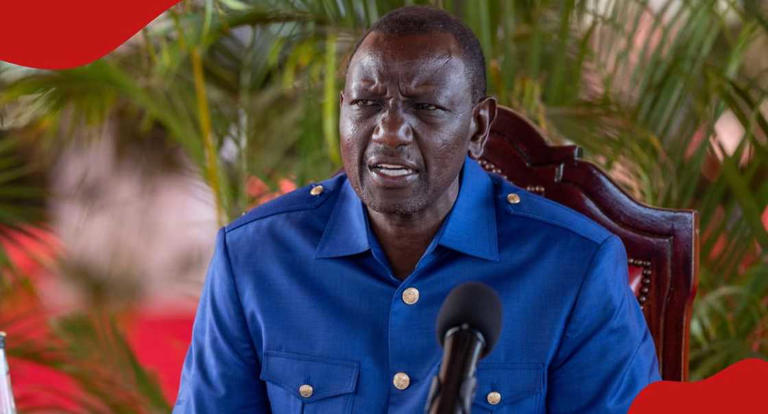By Moses Muli Published: August 30,2024 10:32 AM During a town hall meeting on Thursday,…
Gender rule: Fourteen years later, women still on the periphery
By Moses Muli
Published: August 28,2024 03:35 PM
Fourteen years after Kenyans adopted a progressive constitution, many of their aspirations remain unfulfilled. Women, in particular, are still hoping for a new dawn when the two-thirds gender rule in elective positions becomes a reality.
As the country celebrated the constitution’s 14th anniversary, it was clear that Article 81 of the Constitution, which mandates that no more than two-thirds of members of elective public bodies shall be of the same gender, has yet to be fully implemented.
Against this backdrop, former Chief Justice David Maraga wrote an advisory to former President Uhuru Kenyatta in 2020, urging him to dissolve Parliament because it had failed to implement the two-thirds gender rule nearly a decade after the new constitution was promulgated.
In his advisory, Maraga informed President Kenyatta that Parliament had not enacted the necessary legislation to implement the two-thirds gender rule. The Court of Appeal had previously observed that this failure was a clear indication of Parliament’s lackadaisical attitude and conduct regarding this matter.
“Consequently, it is my constitutional duty to advise the President to dissolve Parliament under Article 261(7) of the Constitution. There is no doubt that the dissolution of Parliament will cause inconvenience and even economic hardship,” said Justice Maraga at the time.
Justice Maraga noted that, given the wording of Article 261 of the Constitution, Kenyans were well aware of the potential cultural resistance to the transformational ideas on gender equality that the Constitution would face.
He said the enforcement mechanism of dissolving Parliament under Article 261(7), regardless of its consequences, was clearly the radical remedy Kenyans desired to incentivize the political elite to fully operationalize the agenda of the Constitution they adopted in 2010.
“In these circumstances, let us endure pain, if we must, to remind ourselves, as a country, that choices—particularly choices on constitutional obligations—have consequences. Let us endure pain, if only to remind the electorate to hold their Parliamentary representatives accountable,” Maraga said at the time.
The 11th Parliament, which assumed office in March 2013, failed to meet the Supreme Court deadline of August 27, 2015, to implement the two-thirds gender rule. MPs invoked the provisions of Article 261(2) of the Constitution, allowing them to extend the deadline for enacting the law by one year.
Parliament extended the timeline, but when the one-year extension lapsed, it again failed to pass the bill. This meant that by August 27, 2016, Parliament had exhausted all constitutional deadlines without enacting the two-thirds gender rule, as required by the Constitution.
In September 2016, the Centre for Rights Education and Awareness and other human rights organizations went to court to challenge Parliament’s failure to pass the law. The National Gender and Equality Commission and the Law Society of Kenya joined in supporting the case.
In its judgment delivered in March 2017, the High Court found that Parliament had failed in its constitutional duty to pass the two-thirds gender law and determined that this failure amounted to a violation of women’s rights.
“Parliament is directed to enact the two-thirds gender law within 60 days from the day of judgment. If Parliament fails to pass the law, any public-spirited person could petition the Chief Justice to advise the President to dissolve Parliament,” read the judgment.
In a memorandum to the Speaker of the National Assembly, Moses Wetangula in December 2022, President William Ruto championed gender inclusion and affirmative action. His efforts, like previous initiatives has not borne fruit.
The President noted in the memorandum that the implementation of the gender inclusion framework of the two-thirds rule had regrettably become a conundrum that has remained unresolved for too long.
Ruto acknowledged that while there has been a notable legislative effort to facilitate greater political participation by women, and significant gains have been made in increasing the number of women leaders elected to various positions, the composition of the 13th Parliament still falls far short of the constitutional minimum requirement. He emphasized that this non-compliance has far-reaching consequences, recalling that in 2020, the Chief Justice called for the dissolution of Parliament due to its failure to meet the two-thirds gender inclusion principle.
Ruto proposed a constitutional amendment to establish a formula to guide the computation of the gender ratio in the National Assembly based only on the number of members elected from constituencies (National Assembly) and counties (Senate) per Articles 97(1)(a) and 98(1)(a), respectively.
He suggested that for the National Assembly, the effect of this formula would set one-third at 97 members. With 47 affirmative action seats already dedicated to women, the maximum number of additional seats required to fulfil the constitutional threshold would be 50.
Ruto argued that in the current National Assembly, with 26 women elected from constituencies, the nomination of an additional 24 women would be sufficient to meet the constitutional requirement. Using the same formula, the constitutional gender inclusion threshold in the Senate would be met by nominating 16 women.
“Another way to achieve compliance is for political parties to deliberately embark on sustained, institutionalized, and robust initiatives that empower women to successfully contest legislative seats in greater numbers,” Ruto said.
Constitutional expert Bobi Mkangi noted that recent protests by Generation Z provide tangible evidence of the political class’s dismal failure to faithfully implement the Constitution. He emphasized that while the spirit (the people) is strong and willing, the body (politicians) is weak and unwilling.
“However, the future is bright considering the passionate embrace of the document by the owners of the days to come. The youth have demonstrated their deep understanding of this social covenant and are willing to follow it in letter and spirit,” Mkangi said.



This Post Has 0 Comments